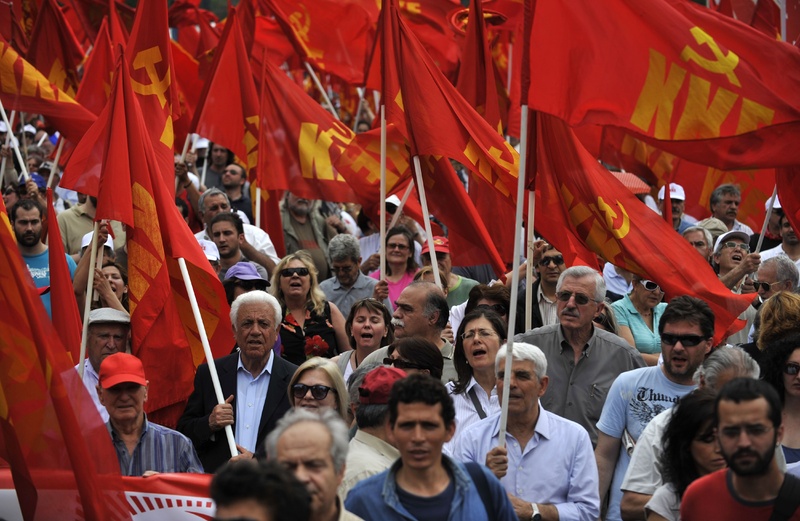ATHENS, Greece — Greek Prime Minister George Papandreou declared he is not ruling out taking legal action against U.S. investment banks for their role in creating the spiraling Greek debt crisis.
Both the Greek government and its citizens have blamed international banks for fanning the flames of the debt crisis with comments about Greece’s likely default, actions that are causing the country’s borrowing costs to soar.
“I wouldn’t rule out that (legal action) might be a recourse. But we need to let due process (take its course) and then make our judgments once we get the results from the investigations,” Papandreou said in a CNN interview broadcast Sunday.
He did not elaborate further on any actions against U.S. banks.
Papandreou also said a parliamentary investigation will examine the rapid swelling of Greece’s debt and international banking practices to examine whether the financial sector engaged in “fraud and lack of transparency.”
The European Union and the International Monetary fund have approved a euro110 billion ($136 billion) bailout package for Greece. In addition, European nations have created a euro750 billion ($1 trillion) rescue package to protect the euro, the common currency of 16 European nations, including Greece.
The Greek leader also urged more regulation of the markets which, in his view, are now betting against the European governments that have poured billions into them since the global financial crisis began in 2008.
Some European governments plan to push for tighter regulation of hedge funds this week – a move opposed by Britain, home to the financial hub of London.
Papandreou also tried to counter criticism, expressed mainly in Germany, that Greeks are getting a free ride and rejected widespread international skepticism about Greece’s ability to pay back its loans. Greek debt is scheduled to exceed 140 percent of its economic output in 2012.
“We are paying back the loans we are getting … this saying that ‘we are handing out money to Greece’ is not true,” he told the CNN show “Fareed Zakaria GPS.” “It is very easy to scapegoat Greece and Greece bashing very often gets entangled in regional politics.”
He insisted his government has made the unpopular but necessary decision to implement austerity measures.
“We are ready to make the changes … we have made our mistakes. We are living up to this responsibility. But at the same time, give us a chance,” Papandreou said.
Still, another top German economist expressed doubts Sunday about Greece’s ability to repay.
Deutsche Bank AG’s Chief Executive Josef Ackermann created an uproar Thursday for mentioning the possibility that Greece might have to restructure its debt – but Dekabank’s chief economist, Ulrich Kater, was quoted as agreeing with him Sunday in the German news website Handelsblatt.
“It will be very, very difficult for Greece to orderly repay its debt,” Kater was quoted as saying, adding that Greece’s new austerity measures and its lack of competitiveness were dooming the country’s prospects for economic growth, making debt reduction difficult.
Despite widespread anger about tax hikes and other austerity measures imposed by Papandreou’s Socialist government, his party still enjoys more support than its predecessor, the discredited conservative party.
According to a poll published Sunday in conservative-leaning newspaper Kathimerini, Papandreou’s popularity has plunged from 53 percent in January to 43 percent in May. The same poll showed that opposition leader Antonis Samaras has sunk from 26 percent approval in February to 18 percent in May.
On the other hand, 76 percent of respondents also say they are unsatisfied with the Socialist government’s performance.
The poll was conducted May 6-10 with a sample of 1,006. Its margin of error was plus or minus 3.2 percent.
Send questions/comments to the editors.



Success. Please wait for the page to reload. If the page does not reload within 5 seconds, please refresh the page.
Enter your email and password to access comments.
Hi, to comment on stories you must . This profile is in addition to your subscription and website login.
Already have a commenting profile? .
Invalid username/password.
Please check your email to confirm and complete your registration.
Only subscribers are eligible to post comments. Please subscribe or login first for digital access. Here’s why.
Use the form below to reset your password. When you've submitted your account email, we will send an email with a reset code.